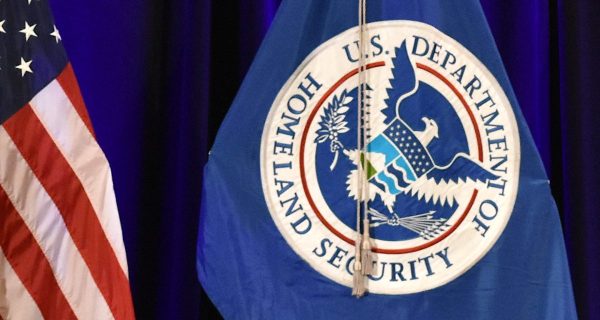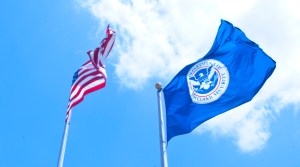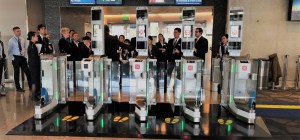Secretary of Homeland Security Jeh Johnson testified Wednesday before House lawmakers, in what was billed as an opportunity for the new secretary to lay out for Congress his management and policy priorities for the department.
And while much of the two-hour hearing before the House Committee on Homeland Security focused on border security, immigration reform and terrorism, inquiries into Johnson’s management and policy priorities quickly zeroed in on a string of controversial DHS decisions that have some lawmakers concerned about structural defects at the agency.
Rep. Bennie G. Thompson, D-Miss, ranking member on the committee, urged Johnson to enforce former DHS Secretary Janet Napolitano’s concept of “One DHS,” arguing that the 22 formerly independent agencies that now make up DHS continue to follow separate and sometimes conflicting policies and procedures.
“As you have undoubtedly learned by now, DHS components essentially function as independent entities,” Thompson said. “All too often, components see directives from headquarters as advisory. That has to stop.”
Thompson pointed to the recent example of a decision by U.S. Immigration and Customs Enforcement to release a public solicitation to industry for a national license plate recognition database without the knowledge or approval of senior DHS leaders and without having conducted a privacy impact assessment.
“For ‘One DHS’ to truly have meaning, components must adhere to departmentwide policies and mandates,” Thompson said.
The centerpiece of the department’s “One DHS” vision — its new, $4 billion headquarters, currently under construction on the former grounds of the St. Elizabeths hospital in Washington, D.C. — also came under fire for massive cost overruns and delays.
Rep. Richard Hudson, R-N.C., said he did not think the project was a good use of taxpayer money. The headquarters is not expected to be completed until 2026 and will cost nearly four times more than the department estimated because of the extensive renovation work required to save the historic buildings located on the campus.
Johnson characterized the new headquarters as important to DHS morale and the “One DHS” concept, but acknowledged he also has questions about the cost and timeline for the largest construction project in the history of the General Services Administration.
“We ought to finish what we started,” Johnson said. “It’s a wonderful place. But I will probably never work there.”
Lawmakers also asked Johnson to explain DHS’ decision to establish a preclearance facility staffed by U.S. Customs and Border Protection officers in Abu Dhabi International Airport to screen U.S.-bound passengers. Members of the committee said they are concerned about the ability of these passengers to bypass domestic U.S. security screening once they land at U.S. airport and board a connecting flight.
Thompson introduced a letter from the Airline Pilots Association that has accused CBP of following a “pay-to-play” policy to determine where and when to build overseas preclearance facilities.
While Johnson said rescreening these passengers is “important” and that he intends to look at ways to do that, he emphasized the department’s belief that overseas preclearance facilities are critical to U.S. aviation security.
“In my judgment, looking at the security of the various last points of departure airports that are out there … is a homeland security imperative,” Johnson said.
But Rep. Patrick Meehan, R-Pa., questioned the department’s establishment of a preclearance facility in Abu Dhabi and a planned facility 100 miles away in Dubai when DHS already has well-established programs in place, such as the Trusted Traveler and Global Entry programs.
“I’ve looked at security at the various different levels of security at our last points of departure airports,” Johnson said. “It tends to vary. And that’s of considerable concern to me. I believe preclearance is a homeland security imperative.”
The hearing ended with a more contentious exchanged between Johnson and Rep. Jason Chaffetz, R-Utah, who raised concerns about Christian Marrone, Johnson’s pick for DHS chief of staff. Marrone was a central witness in a 2008 federal corruption trial involving Pennsylvania state Sen. Vince Fumo, who also became Marrone’s father-in-law. Fumo was sent to prison and Marrone admitted to several improprieties during his testimony.
Johnson is expected to respond in writing to questions by Chaffetz pertaining to how Marrone was able to obtain a security clearance and pass through the White House selection process.
“I’ve known him for five years,” Johnson said, adding he worked with Marrone at the Defense Department when Marrone worked directly for former Defense Secretary Robert Gates.
“Mr. Marrone impressed me … for his administrative [and] organizational skills, his ability to put together a budget process, and his ability to identify inefficiencies,” Johnson said. “And I’m glad I hired him.”






